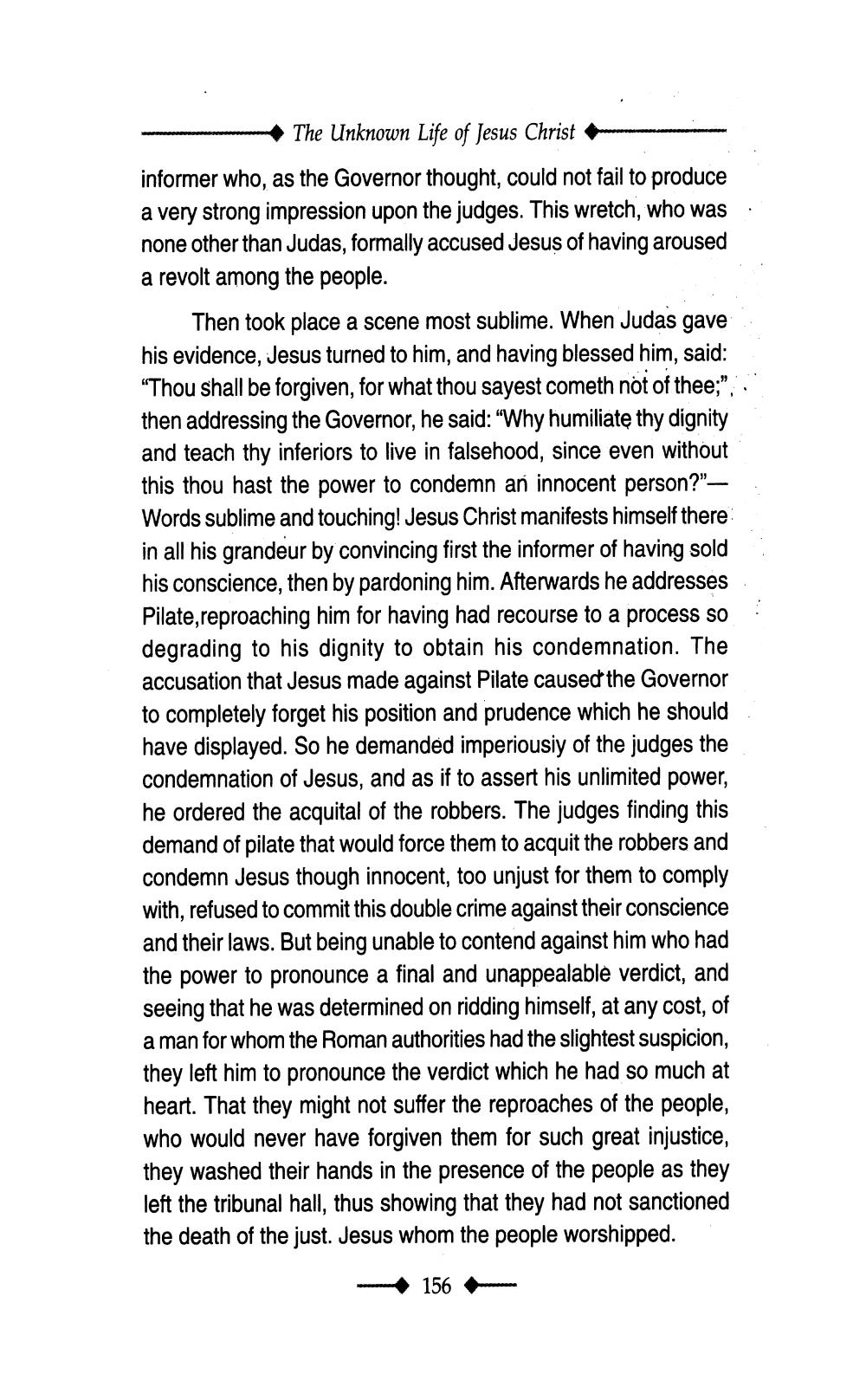________________
- The Unknown Life of Jesus Christ informer who, as the Governor thought, could not fail to produce a very strong impression upon the judges. This wretch, who was none other than Judas, formally accused Jesus of having aroused a revolt among the people.
Then took place a scene most sublime. When Judas gave his evidence, Jesus turned to him, and having blessed him, said: “Thou shall be forgiven, for what thou sayest cometh not of thee;". then addressing the Governor, he said: “Why humiliate thy dignity and teach thy inferiors to live in falsehood, since even without this thou hast the power to condemn an innocent person?"Words sublime and touching! Jesus Christ manifests himself there in all his grandeur by convincing first the informer of having sold his conscience, then by pardoning him. Afterwards he addresses Pilate,reproaching him for having had recourse to a process so degrading to his dignity to obtain his condemnation. The accusation that Jesus made against Pilate caused the Governor to completely forget his position and prudence which he should have displayed. So he demanded imperiousiy of the judges the condemnation of Jesus, and as if to assert his unlimited power, he ordered the acquital of the robbers. The judges finding this demand of pilate that would force them to acquit the robbers and condemn Jesus though innocent, too unjust for them to comply with, refused to commit this double crime against their conscience and their laws. But being unable to contend against him who had the power to pronounce a final and unappealable verdict, and seeing that he was determined on ridding himself, at any cost, of a man for whom the Roman authorities had the slightest suspicion, they left him to pronounce the verdict which he had so much at heart. That they might not suffer the reproaches of the people, who would never have forgiven them for such great injustice, they washed their hands in the presence of the people as they left the tribunal hall, thus showing that they had not sanctioned the death of the just. Jesus whom the people worshipped.
-
156




